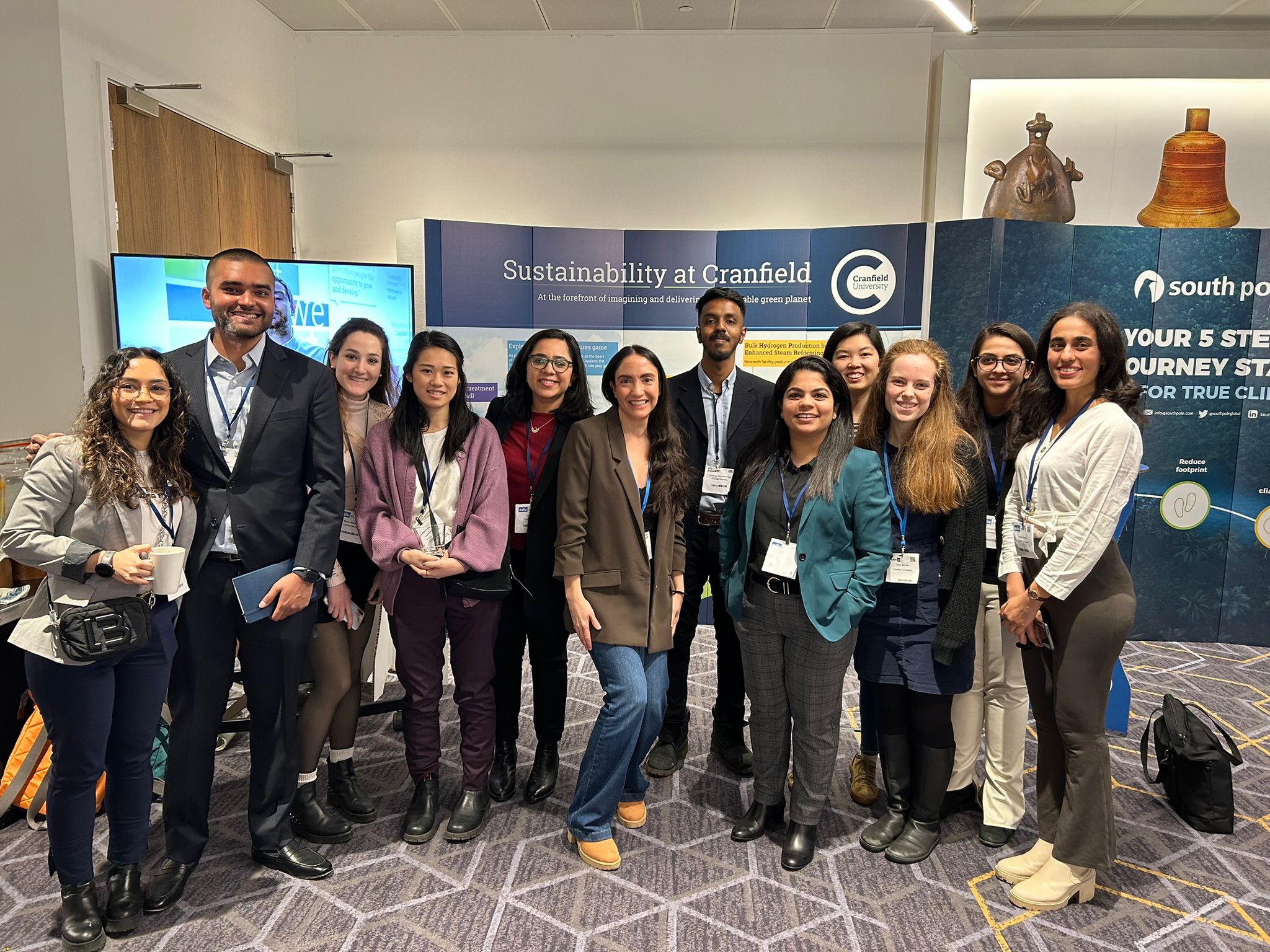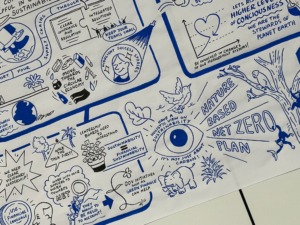The Sustainability of a Solutionist Mindset
09/03/2023

‘Have a solutionist mindset’
These words were spoken by Ms Solitaire Townsend, the founder of Futerra, who kicked off the Edie 23 conference Consisting of 130+ speakers and 700+ delegates. To achieve the goals of the Paris Agreement and limit global warming to well below 2 degrees Celsius, a rapid and profound transition away from fossil fuels is necessary.
Mikaela Loach, a British climate justice activist, writer, and podcaster explained that without a just transition, there is a risk that the costs of decarbonisation will be unfairly borne by vulnerable communities, leading to social unrest and political opposition to climate action.
Edie 23 celebrated its birthday on 1 March 2023. The theme this year was Leadership Through Crisis. Attending the conference was quite surreal for our cohort, as we got an insight into the sustainable development initiatives taken by industrial pioneers in sustainability. The forum deconstructed sustainability into chunks of issues, as the speaker series brought forth significant challenges into the limelight. The workshops created strategies, and the panel discussions brought dialogue with the industrial giants such Christian Dior and Pukka Herbs to see the best method to tackle these issues.
Each sector chosen was carefully deliberated upon. Attendees were quite outspoken about their views concerning their business and overall trends in tackling major issues such as reporting standards, scope emissions and transparency in supply chains. It was insightful to see the decarbonising the supply chain workshop unfurl workshop hosted by Ms Sophie Bidwell, the Director of Springwise. The group activities with business owners and individuals from social and ethical sourcing gave their views on which approach would be more beneficial for their companies. A significant highlight of this event was integrating SDGs into the decisions, to create a more conscientious impact towards increasing transparency and improving the living conditions of minimum wage workers in developing countries.
It was evident and consistent amongst all sectors that there has been a lot of controversy about green washing and green hushing. I noticed that sometimes diplomacy is not an option. There is a need for a more robust infrastructure to tackle this, as companies that are green hushing need to be empowered to be more outspoken. Companies misinterpreted as greenwashing should exercise more due diligence before creating unattainable goals. It was a delightful structure of examples and strategies that SouthPole created to develop more resilience in their business.
A key takeaway was how stringent companies must be in marketing and revealing tangible goals, rather than what they could have achieved. It is essential to distinguish between consumer criticisms based on a lack of awareness versus genuine complaints by institutions that have actually done evidence-based analysis to call them out. I also understood the importance of transparent reporting guidelines and maintaining a consistent flow of verifications by different standards.
Pillar of Sustainability
Another pillar of sustainability that was talked about was the Environmental, Social and Governance aspects of Finance. Chaired by Dominic Waughray, Dorothy Maxwell, Heather Buchanan and Steve Howard, the panel created a holistic conversation on how environment and governance go hand-in-hand. It also discussed the importance of creating green finance instruments in Carbon Accounting to support businesses looking forward to paving a green path.
Attending the Wild Wild West panel discussion was a step towards unscrambling the ESG alphabet soup and including biodiversity as a significant investing sector. It talked about the jargon that deters traditional financial institutions from adapting quickly and adding layman’s terms to make it more digestible for those slowly understanding sustainability’s role. The infrastructure of reporting and disclosure is slowly building ground up. My takeaway from this session was that the importance of regulations that could streamline the funds and help to mobilise green capex more efficiently.
The Mess-Up Night was my favourite
Prominent companies such as Interface humbly came forward to discuss their mistakes, inspiring us to remain humble and realise the importance of accountability. It depicted sustainability as the power of taking risks and arming ourselves with lessons and impacts.
Towards the end of the programme, I asked Cranfield’s visiting professor, Professor Hugh Wilson, his thoughts. He said; “This event has been a cathartic journey, as trying to make a difference can cause burnouts often. Watching people dedicated to the same cause as you, is motivating and helps build resilience”. Thanks to Edie’s sponsor, MyMynd, seeing everyone unlock their potential to thrive was inspiring.
Concluding this article, I want to thank Cranfield University for this opportunity, and for giving us this platform to correlate our class learning with industrial standards and expectations. It is fascinating to be alive in an ever-evolving world!
Categories & Tags:
Leave a comment on this post:
You might also like…
From classroom to cockpit: What’s next after Cranfield
The Air Transport Management MSc isn’t just about learning theory — it’s about preparing for a career in the aviation industry. Adit shares his dream job, insights from classmates, and advice for prospective students. ...
Setting up a shared group folder in a reference manager
Many of our students are now busy working on their group projects. One easy way to share references amongst a group is to set up group folders in a reference manager like Mendeley or Zotero. ...
Company codes – CUSIP, SEDOL, ISIN…. What do they mean and how can you use them in our Library resources?
As you use our many finance resources, you will probably notice unique company identifiers which may be codes or symbols. It is worth spending some time getting to know what these are and which resources ...
Supporting careers in defence through specialist education
As a materials engineer by background, I have always been drawn to fields where technical expertise directly shapes real‑world outcomes. Few sectors exemplify this better than defence. Engineering careers in defence sit at the ...
What being a woman in STEM means to me
STEM is both a way of thinking and a practical toolkit. It sharpens reasoning and equips us to turn ideas into solutions with measurable impact. For me, STEM has never been only about acquiring ...
A woman’s experience in environmental science within defence
When I stepped into the gates of the Defence Academy it was the 30th September 2019. I did not know at the time that this would be the beginning of a long journey as ...








